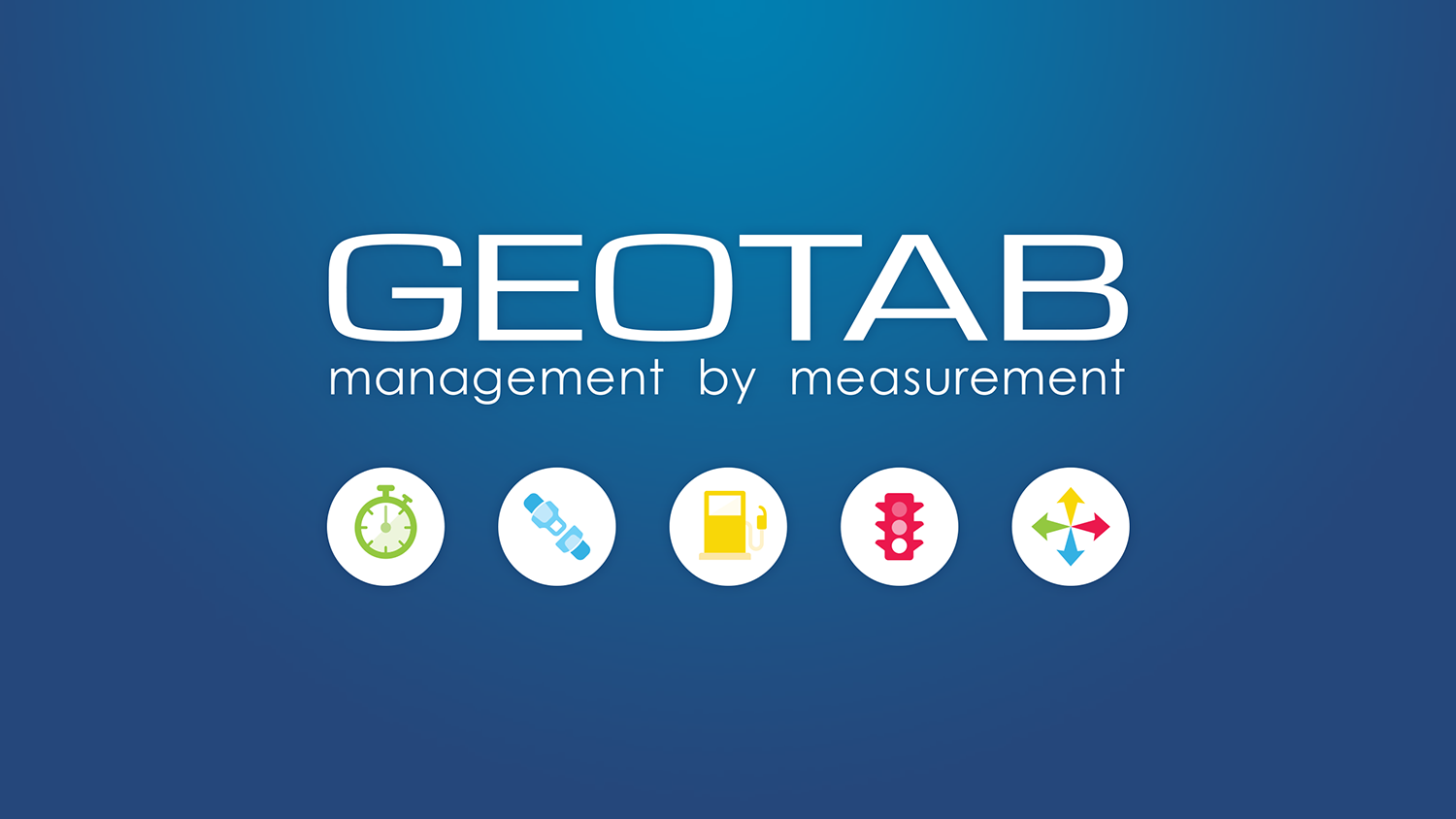Contributor: Colin Sutherland, Executive Vice President Sales and Marketing, Geotab
How has COVID-19 affected the business as a whole and how have you adjusted to the change?
It comes as no surprise that COVID-19 has dramatically impacted the way that we live and work. For Geotab, despite unprecedented changes such as global work from home orders, the company has remained agile and has continued to experience growth. Since a large number of our customers are considered essential to COVID-19 recovery efforts, Geotab has been committed to supporting fleets and businesses with relevant data insights to help enable informed, data-driven decisions as they navigate through these challenging times.
At the start of the pandemic, in a combined effort, Geotab and Webfleet Solutions data science teams launched the Commercial Mobility Recovery Dashboard. The dashboard analyzes anonymized and aggregated data from over 3 million connected vehicles around the world to help visualize the impact of COVID-19 on commercial vehicle activity and to help support strategic recovery efforts. The dashboard provides insights into commercial vehicle activity across countries in Europe and North America along with industry-specific insights from construction, business services and transport logistics. In addition, the dashboard can be leveraged to gain insights into trade and fuel activity. Built to empower and inform the decision making of business and governments, the dashboard is intended to help the industries navigate the effect of COVID-19.
Following the launch of the Commercial Mobility Recovery Dashboard, Geotab took its support efforts once step further and launched the Fleet, Transportation and Mobility Industry Pulse Analysis report. For this analysis, Geotab contacted global bellwether clients from across a range of industries to better understand how their businesses, suppliers, customers and competitors have been impacted and what recovery efforts and impacts are occurring. In a rapidly changing environment, customers and businesses can utilize the report to gain insights into how their particular industry is recovering from COVID-19 in a variety of different aspects including, business impact, operation impact and financial impact. From Geotab’s perspective, these insights allow us to understand the diverse needs from different industries to help ensure that we are providing relevant tools and support as we all continue down the road to recovery.
What areas of the business have seen especially large growth during this time?
Although every industry is experiencing various impacts as a result of COVID-19 due to stay at home orders and essential versus nonessential business designations, Geotab has seen sustained growth with a three-year revenue growth of 191%, and 200,000 new vehicles connected since January raising our total to over 2.2 million globally. As data continues to become an increasingly valuable tool during these unprecedented times, Geotab as an information technology and services company has been able to continue operations with minimal impact from COVID-19.
In addition, Geotab has also been tracking recovery efforts of industries, government and associations relevant to the fleet, transportation and mobility segments to assess the current level of operations and projections for future activity. Insights are available in the Fleet, Transportation and Mobility Industry
Pulse report so that businesses can use these insights to make informed decisions as they continue to navigate the impacts of COVID-19. For instance, the report indicates that only 14.3% of customers
surveyed are operating at “normal” levels meanwhile 52.4% have been unable to predict when they will be operating at a normal level.
What does Geotab bring to the market that’s different to other similar telematics providers?
Geotab brings unique value to the market in a few different ways. First, Geotab provides an open platform which gives our customers unfiltered access to their data. Along with an open platform, Geotab’s services offer fleets advanced EV capabilities. Lastly, Geotab’s reseller model enables it to simultaneously provide high-quality customer service and best-in-class products.
It has always been important for us to provide an open platform. With an open platform, customers have unlimited access to the data generated by their vehicles. This is important because it allows customers to have complete control over their data, enabling companies to share and utilize the data as they see fit without intervention from Geotab. An additional benefit of the open platform is that even as technology and the fleet industry continue to evolve and grow, customers will always have the flexibility to customize or scale their data to meet the changing needs of their fleet. With access to the Geotab Marketplace, a robust platform of hardware Add-Ons and software Add-Ins that seamlessly integrate with Geotab’s open platform, customers can choose from a vast variety of solutions to help them customize and/or scale their data to help them meet the changing needs of their fleet.
At Geotab, we understand that fleet electrification is the future and that is why Geotab’s fleet management system supports the largest set of EV makes and models available, including medium and heavy-duty EVs and buses. Since EVs do not follow mandatory telematics data standards, gaining access to EV data can be more difficult than from conventional vehicles. Geotab has worked directly with manufacturers to overcome these difficulties and to develop an ELD with unique capabilities that enables it to process EV data. With Geotab’s fleet management system, MyGeotab, electric fleets can feel confident that they have full access to their EV data. MyGeotab provides reports that enable electric fleets to easily monitor the performance of their EV and/or plug-in hybrid electric vehicles (PHEVs). Reports like the Fuel and EV energy usage report and the EV charging report, provide insights into the range and battery performance of their EVs and PHEVs along with information about when and where vehicles are charging, to provide deeper insights into why EVs are at their current charge percentage. In addition, MyGeotab enables map functionality to provide fleets with real-time data on battery charge percentage and charging status so fleets can help identify which EV in the fleet has the most (or least) battery charge, so fleet managers can dispatch the correct vehicle to perform fleet tasks.
Geotab delivers its technology through its unique Reseller model underscoring the focus that customer experience matters. To briefly explain, Resellers purchase the GO device from Geotab and then it becomes the responsibility of the Reseller to not only sell devices and the corresponding software packages but to implement and cultivate relevant reporting and solutions with customers. With the responsibility of customer sales and success given to its Reseller network, Geotab is able to focus on its core priorities as an engineering company: research and development. Therefore, the Reseller network enables Geotab to allocate its resources to deliver the best-in-class products without forfeiting quality customer service for their end-users.
How are things looking for the business from a global perspective and how do you think that will affect the Australasian automotive industry moving forward?
Since Geotab was established in 2000, Geotab has expanded its presence in North America, Australia, Europe and Africa and it is looking to expand into Asian markets. Currently, North America is Geotab’s strongest market but it is continuously working to boost growth in other regions. Given Geotab’s goals to establish its presence globally and a projected compound annual growth rate of 16 percent in the Australian commercial telematics market, Geotab decided to open a new office in Adelaide in 2019, to help serve Geotab’s current Australian customers and partners and enable further adoption of its solution.
Currently, Geotab equips 27K vehicles across the continent with its telematics technology. To make Geotab’s solution beneficial for Australian fleets, Geotab identified key challenges specific to Australian fleets and has developed tools that will allow fleets to customize the solution to meet their needs. First, to overcome remote connectivity concerns, Geotab offers an IOX expansion to an Iridium satellite modem. This allows fleet vehicles to continuously send location information, even when the vehicle is out of mobile coverage. This allows fleets to maintain complete visibility of a fleet’s movement for safety reporting. To help enhance the safety of Australian drivers further, the Geotab solution can be expanded to include an in-vehicle duress button fitted to the vehicle’s dashboard and external man-down pendant, worn by the worker. Both buttons allow the driver to alert the base if they are in a risky or hazardous situation allowing for swift responses. In addition, the GO device is capable of registering vehicle use information, such as seat belt use and it can create zones to not only allow users to be alerted when workers might be at risk but to also help boost productivity through customized reporting of progress.
What would you say to smaller or budget-conscious fleets that aren’t currently utilising telematics?
Geotab’s objective is to help businesses improve and better manage their operations so that it’s easier to meet their goals. It’s important that fleets choose a telematics partner that has experience working with fleets of all sizes – from 1 vehicle to 100+ vehicles – and proven success supporting various levels of budgets, goals and challenges.
By collecting telematics data, a company is equipped with the tools to more successfully navigate through a variety of situations, whether its experiencing growth, working through a rough patch, or looking to maintain a budget. For instance, telematics data can help a company improve its efficiencies, which can help better control costs. One way a company can utilize telematics data to improve its efficiencies is by using it to better understand their asset utilization. If a fleet can establish a firm grasp of its total cost for running its vehicles and equipment, and then match that against the needs and productivity of the business, they will be able to streamline its operations and potentially cut down costs. Some examples of telematics solutions for asset utilization include trip summary reports and route optimization reports.
Another example would be improving driver safety. With improved driver safety, fleets can help to avoid or better manage costs related to collisions, maintenance and downtime. Telematics data can help to identify the risky driving habits in the fleet such as harsh braking or aggressive driving using driver scorecards or dashcams. This information would then inform the fleet management on how to minimize safety-related costs.
Is there a new telematics product or feature that Geotab is working on that has especially helped those within the fleet sector?
Geotab is committed to advancing technology and empowering businesses. To name a few of its most recent products, Geotab has launched the battery degradation tool and the electric vehicle suitability tool (EVSA) to help address fleets trends beginning to focus on electric vehicles.
The EV Battery Degradation Tool, which through aggregate data processed from 6,300 electric vehicles (EVs), offers comparison and assessment of battery health in EVs over time. This easy to use tool leverages data processed from EVs representing 64 makes, models and years to help showcase how real-world conditions influence battery health. Since battery health has a direct impact on both the maximum usable range and the vehicle’s residual value, the Battery Degradation Tool examines the real-world performance of EVs to provide a detailed report to help facilitate informed purchasing decisions.
The Electric Vehicle Suitability Assessment (EVSA) tool helps fleet managers determine electric vehicle suitability by analyzing existing telematics data from their current fleet and creates a multi-year procurement plan to help electrify it. The plan provided includes lifetime cost and financial analysis, range assurance with best fit analysis and environmental impact analysis that calculates fuel and CO2 emissions reductions. In this way, the EVSA provides all the information required to help ensure the electric vehicle selected will be able to meet the current objectives of the fleet.
What are some of the long-term strategic goals of Geotab for the next decade or so?
Geotab always has our finger on the pulse of the transportation industry, and we continue to remain agile in response to new and developing trends within the industry. Over the next decade or so, Geotab will likely allocate its resources to many emerging and developing trends in the market. To name a few Geotab will set its focus on trends like sustainability and the evolving value of telematics.
Geotab announced its sixth pillar of innovation at the Geotab Connect Conference 2020, sustainability. With this in mind, Geotab intends to support sustainability by supporting EV adoption and enhancing mobility to help improve air quality. Over the past year, Geotab has introduced a variety of tools and resources including the EV Battery Degradation Tool, the Electric Vehicle Suitability Assessment (EVSA) and the Temperature Tool for EV Range. As Geotab moves into the future it will continue to encourage and help businesses electrify their fleets to help meet new and reduced emission goals. In addition to EV adoption, improved mobility will help the transportation industry achieve its sustainability goals. Our current infrastructure cannot sustain the demands of our modern mobility needs and as a result, we experience heavy traffic congestion. Traffic congestion along with our current dependence on fossil fuels makes transportation a major contributor to greenhouse gas emissions. Geotab GmbH is collaborating with Centre Smart Services on the RWTH Aachen Campus in Germany to investigate air-quality in Aachen, the project aims to gather hyper-local air quality to support the optimization of traffic planning and management.
In the future, there will be a large value in the new kinds of use cases and business models that will come from using data. A great and current example of this is the value was generating in Las Vegas. Telematics data has allowed the city to achieve less surface congestion and fewer traffic-related injuries, which is of such value that it trumps the cost of the entire telematics solution. Geotab believes that it is going to see a similar situation in the coming years.
Anything else you’d like to cover?
During these unprecedented times, one thing that almost everyone has come to learn is just how important data is. Whether for a business trying to operate, governments trying to reopen, or for the everyday consumer trying to understand the impact of events. Though having access is beneficial to many, the ability to properly navigate and leverage data effectively can be difficult. To help enable users to better analyze and digest data, Geotab’s Data & Analytics team launched Geotab Ignition earlier this year.
Aggregate data from hundreds of thousands of vehicles, equipped with GO devices is available on the Geotab Ignition platform. The purpose of this platform is to advance customers’ knowledge regarding the following topics, smart cities, autonomous vehicles and intelligent transportation. There are currently 25 datasets available for review on Geotab Ignition, the most popular datasets based on their utilization by public and private sector organizations all over the world include Commercial Traffic Analysis, Hazardous Driving Areas, Temperature, Fuel Station Metrics and Mobile Coverage Dark Spots.


















